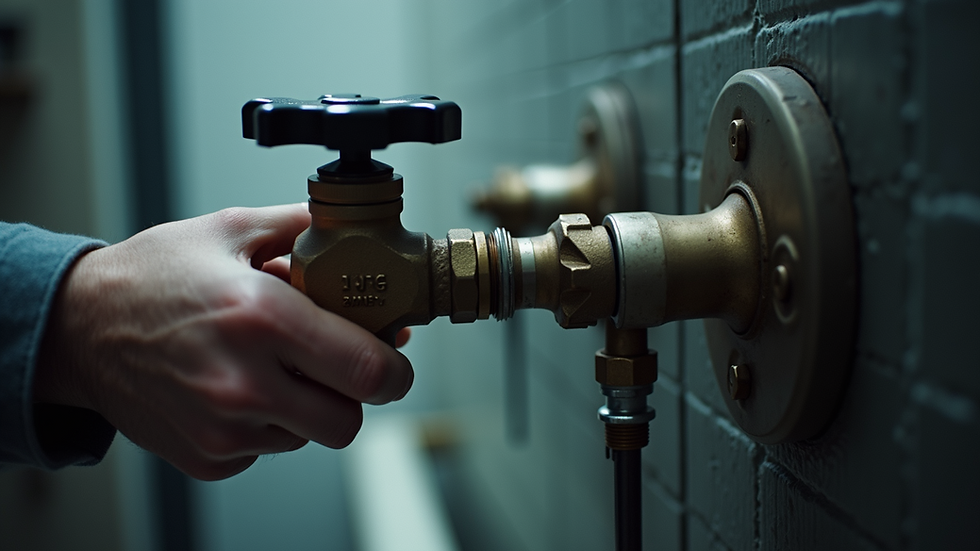Signs Your Heating System Needs Immediate Attention
- Jamie Smith
- Oct 20, 2025
- 4 min read
A heating system is essential for keeping your home warm and comfortable, especially during the colder months. However, like any mechanical system, it can develop issues over time. Recognising the signs that your heating system needs immediate attention can save you from costly repairs and ensure your home stays cosy. This article will guide you through the key indicators that your heating system may be failing and what steps you should take.
Common Signs of a Faulty Heating System
When your heating system starts to malfunction, it often shows clear signs. Being aware of these can help you act quickly.
Uneven Heating: If some rooms are warm while others remain cold, it could indicate a problem with your heating system’s distribution.
Strange Noises: Banging, clanking, or whistling sounds coming from your heating unit are not normal and suggest mechanical issues.
Increased Energy Bills: A sudden spike in your heating costs without increased usage can mean your system is working harder than it should.
Frequent Cycling: If your heating system turns on and off more often than usual, it may be struggling to maintain the set temperature.
Unpleasant Odours: Musty or burning smells can indicate dust buildup or electrical problems.
Ignoring these signs can lead to a complete breakdown, leaving you without heat when you need it most.

How to Identify Heating System Problems Early
Early detection of heating system issues can prevent emergencies and extend the life of your equipment. Here are some practical tips:
Regularly Check Your Thermostat
Ensure your thermostat is working correctly. If the temperature displayed does not match the room temperature, it might be faulty.
Inspect Air Vents and Radiators
Blocked or cold vents and radiators can indicate airflow problems or trapped air in the system.
Listen for Unusual Sounds
Pay attention to any new noises when the system starts or runs. These can be early signs of mechanical wear.
Monitor Heating Performance
Notice if your home takes longer to warm up or if the heat feels weaker than usual.
Look for Water Leaks
Leaks around your boiler or pipes can cause damage and reduce heating efficiency.
If you notice any of these issues, it’s wise to schedule a professional inspection.

How often should you get central heating serviced?
Regular maintenance is crucial for keeping your heating system in top condition. Most experts recommend having your central heating system serviced once a year, ideally before the cold season begins. This annual check-up helps:
Identify and fix minor issues before they become major problems.
Improve energy efficiency, saving you money on bills.
Ensure safety by checking for gas leaks or carbon monoxide risks.
Extend the lifespan of your heating system.
During a service, a qualified technician will clean components, check for wear and tear, and test the system’s overall performance. This proactive approach reduces the likelihood of unexpected breakdowns.

When to Call a Professional for Heating System Repairs
Some heating system problems require immediate professional attention. Here are situations when you should not delay calling a heating engineer:
No Heat or Hot Water: If your system fails to produce heat or hot water, it needs urgent repair.
Pilot Light Keeps Going Out: This could indicate a gas supply issue or a faulty thermocouple.
Water Pressure Drops: Low pressure in your boiler can cause it to shut down.
Visible Leaks or Corrosion: These can lead to serious damage and should be addressed quickly.
Carbon Monoxide Alarm Activation: If your alarm sounds, turn off the system and call a professional immediately.
Attempting to fix these issues yourself can be dangerous. Always rely on certified heating engineers for repairs.
Tips to Maintain Your Heating System Between Services
Maintaining your heating system between professional visits can improve its reliability and efficiency. Here are some simple steps you can take:
Bleed Radiators: Remove trapped air to ensure even heating.
Keep Vents Clear: Avoid blocking air vents with furniture or curtains.
Check Thermostat Settings: Use programmable thermostats to optimise heating times.
Clean Around the Boiler: Keep the area free from dust and debris.
Monitor System Performance: Keep an eye on unusual noises or smells.
Additionally, consider scheduling heating system servicing annually to keep your system running smoothly.
Understanding the Risks of Ignoring Heating System Issues
Failing to address heating system problems can lead to several risks:
Increased Energy Costs: A faulty system uses more energy to heat your home.
Complete System Failure: Minor issues can escalate, causing breakdowns.
Health Hazards: Gas leaks or carbon monoxide exposure pose serious health risks.
Property Damage: Leaks and corrosion can damage your home’s structure.
Taking prompt action when you notice signs of trouble protects your home and family.
Preparing for a Heating System Replacement
Sometimes, repairs are not enough, and a replacement is necessary. Consider upgrading your heating system if:
Your system is over 15 years old.
Repairs are frequent and costly.
Your energy bills remain high despite servicing.
Your home’s heating needs have changed.
Modern heating systems are more energy-efficient and environmentally friendly. Planning ahead for replacement can save money and improve comfort.
By recognising the signs that your heating system needs immediate attention, you can avoid unexpected breakdowns and costly repairs. Regular maintenance, timely repairs, and professional servicing are key to keeping your home warm and safe throughout the year. Stay vigilant and act promptly to ensure your heating system performs at its best.





Comments